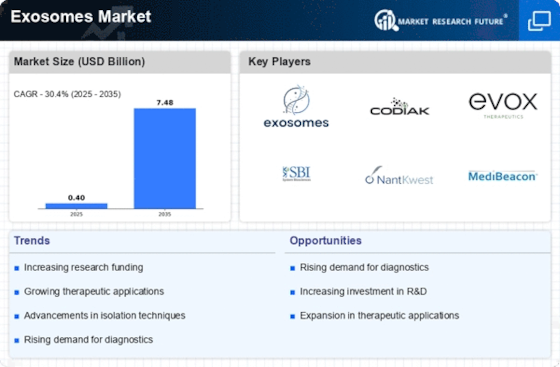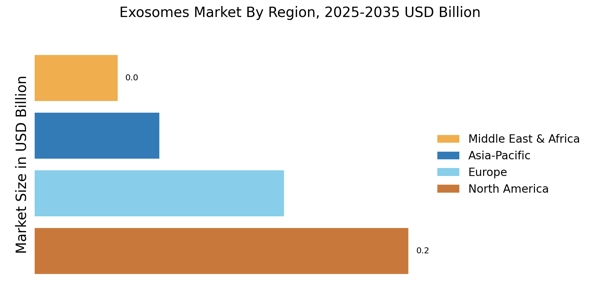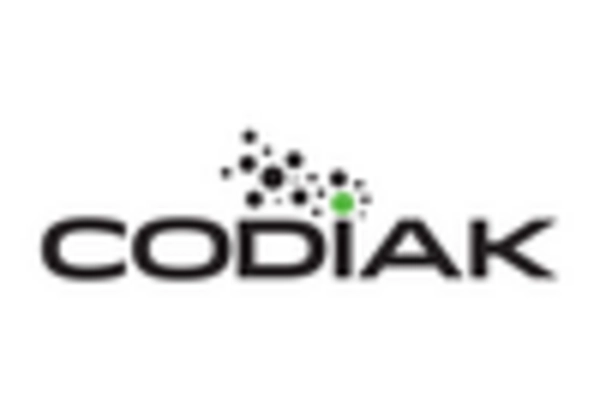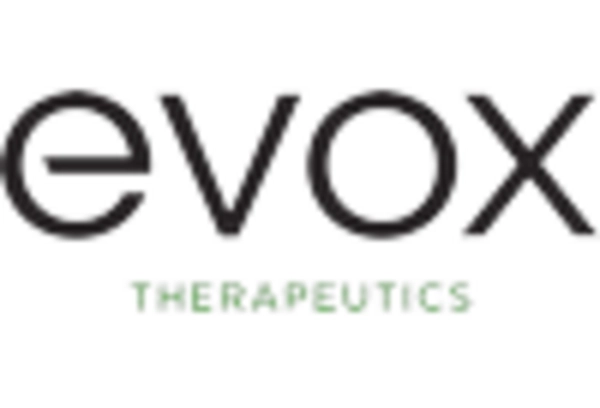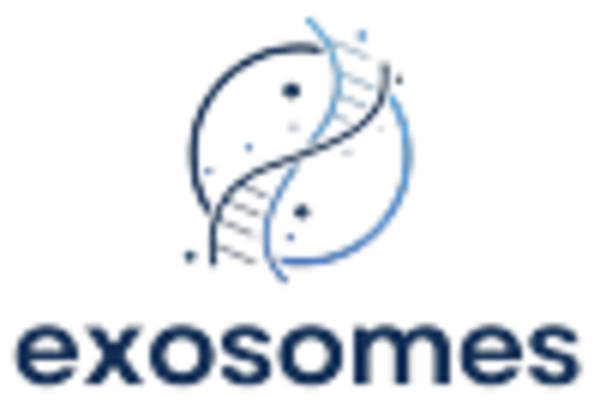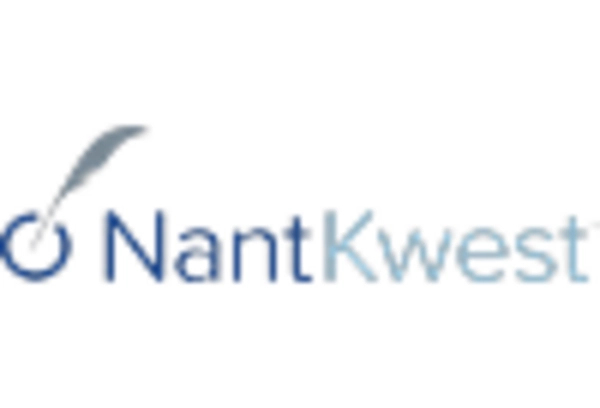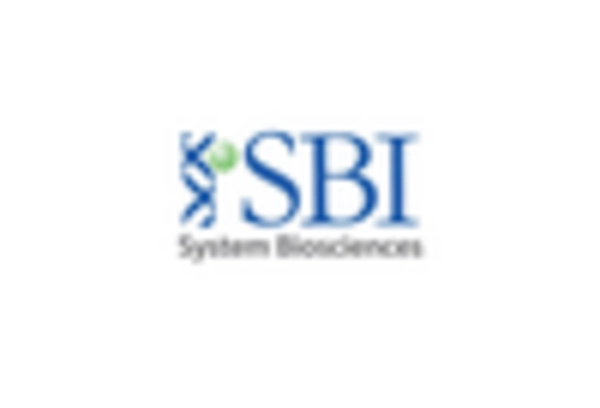Rising Prevalence of Chronic Diseases
The Exosomes Market is significantly influenced by the rising prevalence of chronic diseases, such as cancer, cardiovascular disorders, and neurodegenerative conditions. As these diseases continue to affect a substantial portion of the population, the demand for effective diagnostic and therapeutic solutions is escalating. Exosomes Market, with their unique properties, are being explored as potential biomarkers and therapeutic agents. The market for exosome-based diagnostics is expected to grow at a compound annual growth rate (CAGR) of approximately 25% over the next five years, indicating a robust opportunity for stakeholders in the Exosomes Market.
Regulatory Support and Framework Development
Regulatory support and the development of frameworks for exosome-based products are crucial drivers for the Exosomes Market. As regulatory bodies recognize the therapeutic potential of exosomes, they are establishing guidelines to ensure safety and efficacy. This regulatory clarity is likely to encourage investment and innovation in the field. In 2025, it is expected that several exosome-based therapies will receive regulatory approval, paving the way for commercialization. This supportive environment is essential for fostering growth and instilling confidence among stakeholders in the Exosomes Market.
Increasing Research and Development Activities
The Exosomes Market is experiencing a surge in research and development activities, driven by the growing recognition of exosomes as vital components in intercellular communication. This has led to increased funding from both public and private sectors, facilitating innovative studies aimed at understanding the role of exosomes in various diseases. In 2025, the investment in exosome-related research is projected to reach unprecedented levels, potentially exceeding USD 1 billion. This influx of capital is likely to accelerate the development of novel diagnostic and therapeutic applications, thereby expanding the overall market landscape.
Expanding Applications in Personalized Medicine
The Exosomes Market is witnessing an expansion in applications related to personalized medicine. As healthcare shifts towards more individualized treatment approaches, exosomes are emerging as promising tools for patient-specific therapies. Their ability to carry molecular signatures reflective of the originating cells makes them ideal candidates for targeted drug delivery and tailored therapeutic strategies. The market for exosome-based personalized medicine is anticipated to grow at a CAGR of around 30% in the coming years, highlighting the potential for innovation and growth within the Exosomes Market.
Technological Advancements in Isolation Techniques
Technological advancements in exosome isolation techniques are playing a pivotal role in shaping the Exosomes Market. Innovations such as microfluidics, ultracentrifugation, and immunoaffinity capture are enhancing the efficiency and purity of exosome extraction. These advancements not only improve the quality of research but also facilitate the development of commercial applications. As a result, the market for exosome isolation technologies is projected to grow significantly, with estimates suggesting a market size of over USD 500 million by 2026. This growth is likely to attract new players and foster competition within the Exosomes Market.


